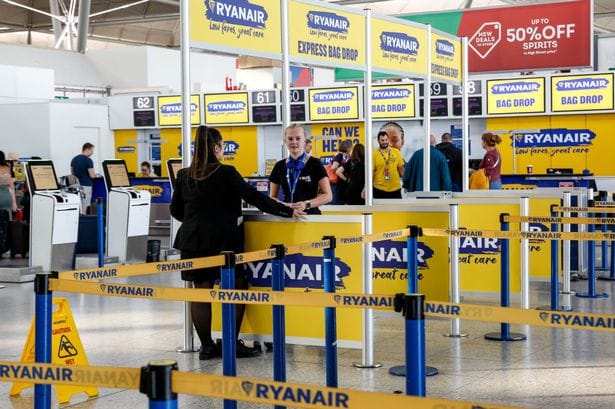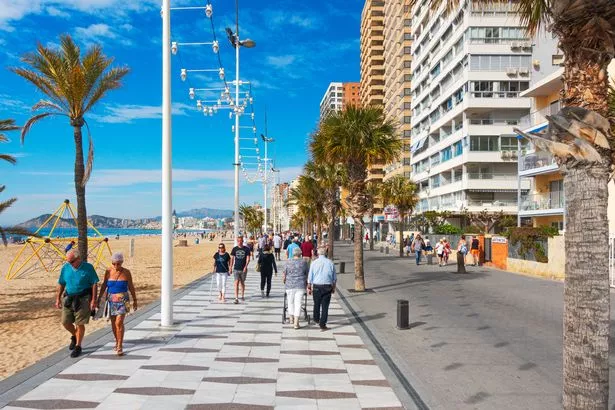A Ryanair passenger recently found themselves gazing at a safety card, wondering what two curious-looking symbols in particular could mean. Happily, someone was on hand to explain
An eagle-eyed airline passenger spotted a curious-looking symbol on a safety card.
When wedged into a slim Ryanair seat waiting for takeoff, letting your eyes wander around the cabin is natural. After a quick skim-read of the potential snacks on offer from the in-flight menu, they may end up resting on a small triangle position above windows— a curious symbol that we’ve previously written about.
They then might find themselves looking at the passenger safety card, which, it turns out, is a little confusing on Ryanair planes.
A Reddit user recently snapped one of them and posted it alongside this comment: “I spent a two-hour flight staring at this, and I cannot work out what they mean!?! What is next to the glasses? And is that an ear? If so, what is coming out of it?”
READ MORE: Mum on Benidorm holiday left ‘petrified’ after teenagers invaded her hotel room
They circled two parts of the card in particular. To give full respect to their comprehension skills, it is not at all obvious what they’re supposed to show. Happily, someone with knowledge of such things was on hand to decode the curious pictures.
“Top right is supposed to be an ear with an earring and a woman wearing a necklace, bottom right is false teeth – things you should remove before using the emergency escape slide, if you needed to use it,” they wrote.
The explanation surprised some in the comments, who had seen completely different objects after staring at the pictures for long enough. “Oh, it is false teeth! I thought it was a stack of steaks,” one person admitted.
Another added: “An earring? I thought it was someone holding up a severed head!”
A third joked: “There is a legal requirement for passenger safety cards to be issued / available. There is no legal requirement for these cards to make any kind of sense.” And a fourth chimed in: “I’m pretty sure the bottom one means ‘don’t pick up your glasses, you need a spare hand for a slice of black forest gateau’.”
When it comes to the little black triangles, the reasons they’re there is as follows.
These markers, which can be either red or black, are strategically placed within the cabin. If you observe closely, you’ll see they align with the wings outside the aircraft. These triangles serve as indicators for the flight crew when they need to inspect the wings, providing them with the optimal viewing points for the external slats and flaps.
This feature proves particularly beneficial during winter months when ensuring the wings are adequately de-iced is crucial. A cabin crew member, known as @_hennylim_ on TikTok, took to the social media platform to elucidate this system.
“1. Passengers sitting next to the triangles get the best view of the wings. 2. If flight crew need to check the wings, these triangles let them know the best vantage points for the slats and flaps outside,” she explained.






